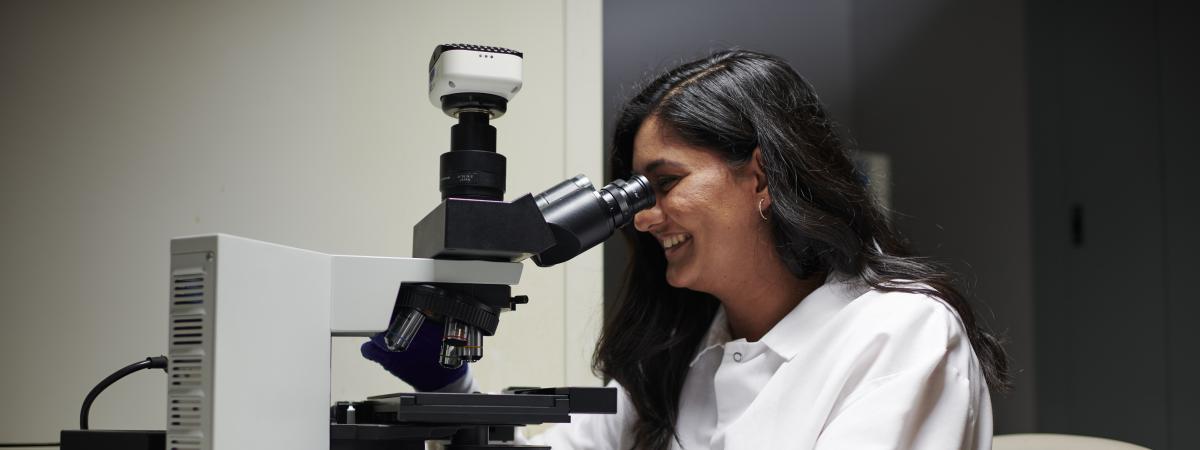Full-time students can complete the 30-credit hour master's degree in two years. The program can also be completed on a part-time basis on a schedule that works for you!
The required core courses provide the foundational elements of RGME, including; stem-cell biology, biomaterial engineering, medical product development, federal regulations, bioethics, and how to take a discovery to market.
In addition, students select an independent study in either hands-on laboratory research or an industry internship. Various science, law, and business development electives, paired with seminars and career development opportunities, round out your tailored experience. In lieu of a thesis, students create public presentations and written scientific projects throughout the program.
Customize your path through electives that align with your goals!
| Required Core Courses | Core Courses PDF |
|---|---|
| Practice Oriented Master's Program Elective Options | Practice PDF |
| Science Elective Options - Natural Sciences | Nat. Science PDF |
| Science Elective Options - Biomedical Engineering | BioEng PDF |
| Science Elective Options - Pathology, Pharmacology, Regenerative Medicine | PPR PDF |
| Business Development and Entrepreneurship Elective Options | BDE PDF |
| Law Elective Options | Law PDF |
| Independent Study Options | Independent PDF |


